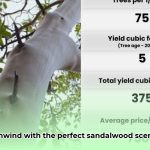Rediscovering Round Houses: A Timeless Design for Modern Living
Picture this: a home where walls gently curve, sunlight dances across open spaces, and a sense of harmony with nature permeates every corner (or rather, every curve). This is the allure of round houses – ancient architectural wonders experiencing a modern resurgence.
Harnessing Nature’s Power: The Efficiency and Strength of Round Homes
Ever wondered why some traditional structures have stood the test of time? The answer often lies in their ingenious design. Round houses, with their unique form, offer several advantages:
Aerodynamic Brilliance:
Imagine the wind flowing effortlessly around a smooth, circular structure, rather than getting caught in sharp corners. This natural aerodynamics makes round houses incredibly energy efficient. They’re less prone to drafts and heat loss, potentially leading to lower heating and cooling costs.
Strength in Curves:
The circular shape isn’t just aesthetically pleasing; it’s inherently strong. Think about it: a round house is less likely to collapse under pressure from strong winds or seismic activity. This resilience makes them a particularly appealing option in areas prone to extreme weather conditions.
Beyond the Box: Embracing Unique Design and Sustainable Practices
Round houses often go hand-in-hand with sustainable living. Here’s why:
Maximizing Natural Light:
With walls designed to embrace the sun’s path, round houses are often flooded with natural light, reducing the need for artificial illumination.
Eco-Friendly Materials:
Many modern round houses are constructed using sustainable, locally sourced materials, such as recycled wood, rammed earth, or straw bales.
Planning Your Round House Journey: What to Consider
Building a round house is a unique endeavor. Here are a few key considerations:
Navigating Zoning Laws:
Building codes and zoning regulations vary widely. Before falling in love with a design, ensure it aligns with local ordinances.
Finding a Specialized Builder:
Round house construction requires specialized knowledge and skills. Seek out experienced builders who understand the intricacies of working with curves.
Embracing Creative Furnishing:
Standard, rectangular furniture might not always be the best fit. Embrace the curves and explore custom-made pieces or unconventional layouts.
“It’s amazing how the curve of the walls just makes you feel more connected to nature,” says Anya Patel, an architect who specializes in round homes. “It’s like living inside a hug.”
## Weighing the Pros and Cons: A Balanced Perspective
Round houses offer a captivating blend of beauty and functionality.
Advantages:
- Energy Efficiency: Their aerodynamic design and reduced surface area contribute to lower heating and cooling costs.
- Strength and Durability: Round houses are naturally resistant to wind, earthquakes, and other natural forces.
- Abundant Natural Light: The circular form allows for ample windows, maximizing sunlight penetration.
- Unique Aesthetic: Their distinctive design adds character and visual interest to any landscape.
- Sustainable Practices: Round houses often lend themselves well to eco-friendly building materials and energy-efficient design.
Things to Consider:
- Zoning Regulations: Local building codes may restrict round house construction.
- Specialized Builders: Finding builders experienced in round house design and construction is crucial.
- Furniture Placement: Fitting conventional furniture can be challenging; embrace creative layouts or explore custom-made pieces.
“It’s not just about the look,” * says Emily Carter, who’s lived in her round house for five years. “It’s a whole different way of living. Calmer, more connected. It’s hard to explain, but you feel it in every corner… well, I guess, every curve of the house!”*
What are those round houses called? Unveiling a World of Round Structures
The term “round house” encompasses a surprisingly diverse range of architectural styles, each with its unique history, cultural significance, and modern interpretations.
Nomadic Traditions: Shelters on the Move
Throughout history, nomadic cultures have relied on portable, round dwellings. Yurts, originating in Central Asia, feature collapsible lattice walls and a felt cover, allowing for easy assembly and transport. Tipis, iconic structures used by Native American tribes, consist of conical frames covered with animal hides or canvas, providing shelter and warmth.
Permanent Dwellings: Rooted in Tradition
Round houses are not limited to nomadic lifestyles. Across the globe, cultures have embraced permanent circular dwellings. Rondavels, found in southern Africa, feature cylindrical walls and conical thatched roofs, offering natural insulation and protection from the elements. Trulli, charming stone houses in Italy’s Puglia region, boast conical roofs adorned with symbolic designs, showcasing a unique architectural heritage.
Modern Expressions: Pushing the Boundaries of Design
Contemporary architects continue to draw inspiration from round forms, pushing the boundaries of design and sustainability. Geodesic domes, constructed from interconnected triangles, offer strength, efficiency, and a futuristic aesthetic. Earthships, built using recycled materials like tires and bottles, are designed for off-grid living and minimal environmental impact.
The enduring appeal of round houses lies not only in their practicality but also in their ability to evoke a sense of harmony, connection, and timelessness. Whether embracing ancient traditions or exploring modern innovations, round houses offer a compelling alternative for those seeking a home that is as unique as it is sustainable.
Is a Round House Cheaper to Build? Unpacking the Costs
The question of cost is central to any building project. While it’s tempting to assume round houses are inherently cheaper due to their seemingly simpler form, the reality is more nuanced.
Potential Cost Savings:
- Material Efficiency: Round houses generally require less exterior wall material to enclose the same square footage as rectangular homes, potentially leading to savings.
- Faster Construction: The simplified geometry of round houses can translate to faster construction times, reducing labor costs.
- Energy Efficiency: Their inherent aerodynamics can lead to significant savings on heating and cooling bills over the lifetime of the home.
Factors Affecting Costs:
- Specialized Labor: Finding experienced round house builders can be challenging and may come at a premium.
- Custom Materials: Curved beams, windows, and other specialized materials may be required, potentially increasing expenses.
- Location & Site: Construction costs vary by region; challenging site conditions can further impact the budget.
What are the disadvantages of round houses? Unveiling the Potential Drawbacks
While visually captivating and often touted for their eco-friendly features, round houses come with their own set of challenges. Understanding these potential disadvantages is crucial for making informed decisions.
Construction Complexities:
- Specialized Expertise: Building a round house requires skilled craftspeople familiar with unconventional techniques and materials. This expertise can be difficult to find and may come at a higher cost.
- Customization Costs: Curved walls, windows, and roofing materials often need to be custom-made, potentially increasing expenses.
- Unforeseen Challenges: The unconventional nature of round house construction can lead to unexpected obstacles and delays, impacting both budget and timelines.
Interior Design Considerations:
- Furniture Placement: Fitting standard rectangular furniture within curved walls can be tricky and may necessitate custom-built pieces or unconventional layouts.
- Wall Space Limitations: Curved walls can limit options for hanging artwork, shelves, or other wall-mounted fixtures.
- Privacy and Sound: Open floor plans, while creating a sense of spaciousness, can pose challenges for privacy and noise control.
Lifestyle Adaptations:
- Storage Solutions: Integrating ample storage space might require creative solutions to maximize efficiency within curved walls.
- Accessibility: Adapting round houses for accessibility needs may require specialized modifications and careful planning.
Embracing the Round House Lifestyle: A Choice for the Discerning Homeowner
Round houses represent a departure from the norm, offering a unique blend of aesthetics, sustainability, and connection to nature. However, it’s essential to approach this architectural style with a realistic understanding of both its advantages and its potential drawbacks.
- Find the Perfect Santa Mugs: Year-Round Guide - July 6, 2025
- Find the Perfect Collectible Santa Figurines: A Guide - July 6, 2025
- Find the Perfect Santa Claus Toys: Holiday Gift Guide - July 6, 2025










